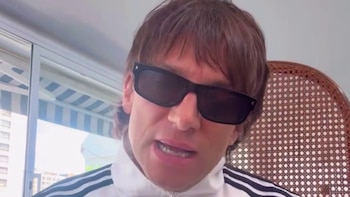Excerpts
Until recently, Rob Koehler was the No. 2 man at WADA – deputy to the director general. He spent 18 years there before resigning in what he says was defeat. During Koehler’s tenure, a series of analyses, including some by WADA itself, estimated that between a quarter and half of the world’s elite athletes were doping. But year after year WADA’s rate of positive drug tests was only about one percent.
JON FRANKEL: When you were working with WADA, was it accepted that there was a lack of efficiency, if you will, in catching these athletes?
ROB KOEHLER: Yeah. I remember at the time, my boss he said we’d all lose our jobs if we were in another industry.
Kohler says that WADA has been undone by a series of structural flaws -- like the fact that it’s a small organization – with little money and even less manpower. As a result, WADA actually has to outsource the job of drug testing to sports officials in each individual country… who often have little interest in DOING it…
JON FRANKEL: I wanna read you some numbers that were released by WADA in 2016 ahead of the Rio Olympics. “Of the 11,470 athletes competing in Rio, more than a third had no record of any testing in that year, in 2016. How could it be that in an Olympic year, so little testing was done?
ROB KOEHLER: It goes to lack of oversight and a lack of accountability...and a lack of desire really to get to the bottom of the barrel to find exactly what’s happening.
JON FRANKEL: If you lose your best athletes, if you lose your biggest names?
ROB KOEHLER: People start to turn off the TV.
Koehler says the IOC makes sure to keep a strong hold over WADA. The IOC controls half of WADA’s funding and IOC members make up nearly half of WADA’s executive committee giving them heavy influence over WADA decisions.
ROB KOEHLER: The IOC finds ways, very easily, to sway decisions. I’ve seen it over and over again.
In 2018 when WADA was facing the biggest doping scandal in modern sports history - the Russian government’s conspiracy to dope its top athletes and hide the evidence. After reviewing the case, Koehler says he advocated internally that all Russian athletes be banned from upcoming Olympics. Until, Koehler says, he was told to stand down.
ROB KOEHLER: It was stated directly to me that “Russia is the most powerful sporting nation. The IOC is a 50% partner. And we don’t want to piss them off, so back off.”
JON FRANKEL: You were told that explicitly?
ROB KOEHLER: Correct.
JON FRANKEL: The IOC wanted the Russian athletes in the games?
ROB KOEHLER: 100%. They were more interested in protecting Russian interests than they were clean sport.
Oliver Niggli is WADA’s Director General.
JON FRANKEL: Rob Koehler’s recommendation was that Russia should be banned, and he said explicitly he was told to back off.
OLIVIER NIGGLI: I don’t know what Mr. Koehler discussed with whom, but I would be factual. The factual thing is what? That WADA in the end punished Russia. There’s never been any impediment in pursuing this Russian case. We did our homework and we went till the end of this fight.
JON FRANKEL: If the IOC is providing half the funding for WADA, doesn’t that present a conflict of interest?
OLIVIER NIGGLI: Why?
JON FRANKEL: Why? Doesn’t the IOC have different interests than perhaps WADA does? The IOC is a money-making operation. You’re in the business of protecting the integrity of the games.
OLIVIER NIGGLI: Correct. But I don’t think the IOC has an image problem if they get some positive at the games, to be honest. I don’t think that’s what tarnish or makes their business less profitable.
- WADA: “Real Sports” investigates allegations that the World Anti-Doping Agency, or WADA, is failing to adequately police international sport for the use of performance-enhancing drugs. Insiders claim that WADA’s mission is being compromised by conflicts of interest and outside meddling. Correspondent Jon Frankel reports. Producer: Max Gershberg.
The executive producer of REAL SPORTS WITH BRYANT GUMBEL is Joe Perskie.
Últimas Noticias
ISF World School Taekwondo Championship 2023: a global celebration of young talent in Mexico
The International School Sport Federation is set to host the eagerly anticipated World School Taekwondo Championship 2023 in Mazatlán, Mexico, bringing together young athletes from over 14 countries for a week of intense competition and cultural exchange.

ISF world school beach volleyball 2023: a celebration of youth, sport, and culture
The International School Sport Federation has announced the highly anticipated ISF World School Beach Volleyball 2023, set to take place in Israel-Bat Yam from May 16 to May 23. Featuring school teams from over 18 countries, this championship will bring together talented young athletes for a week of intense competition

International School Sport Federation (ISF) and China School Sports Federation (FSSC) team up to host global events for the youth
Signing Ceremony of the ISF Football World Cup 2024/2026/2028

World Rowing adopts tighter rules for transgender women athletes

5 months to go for the ISF U15 Gymnasiade Brazil-Rio de Janeiro
Brazil-Rio de Janeiro, ISF Family gathered in Rio de Janeiro for the inspection visit and final preparations for this extraordinary event. Save the Date: August 19 -August 27



